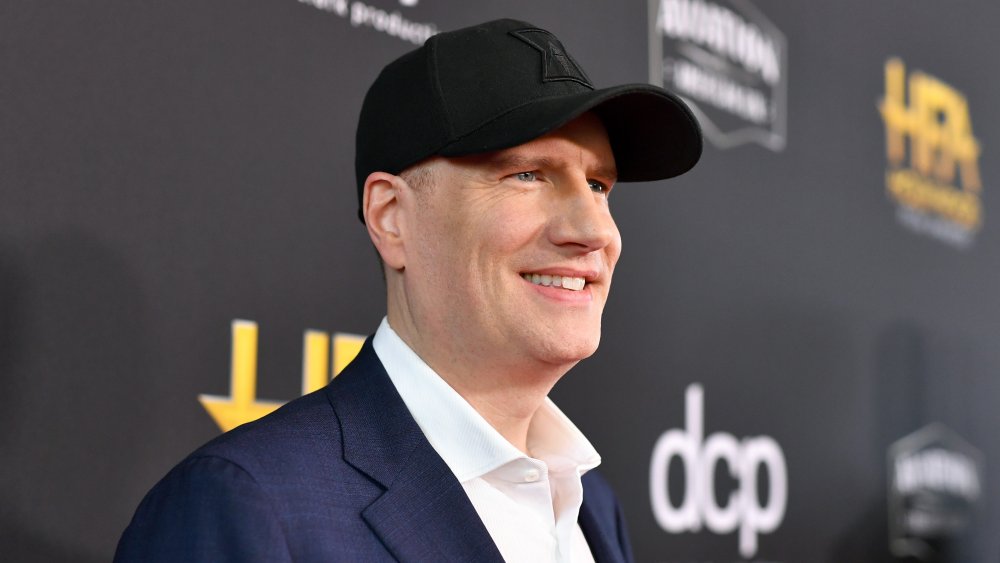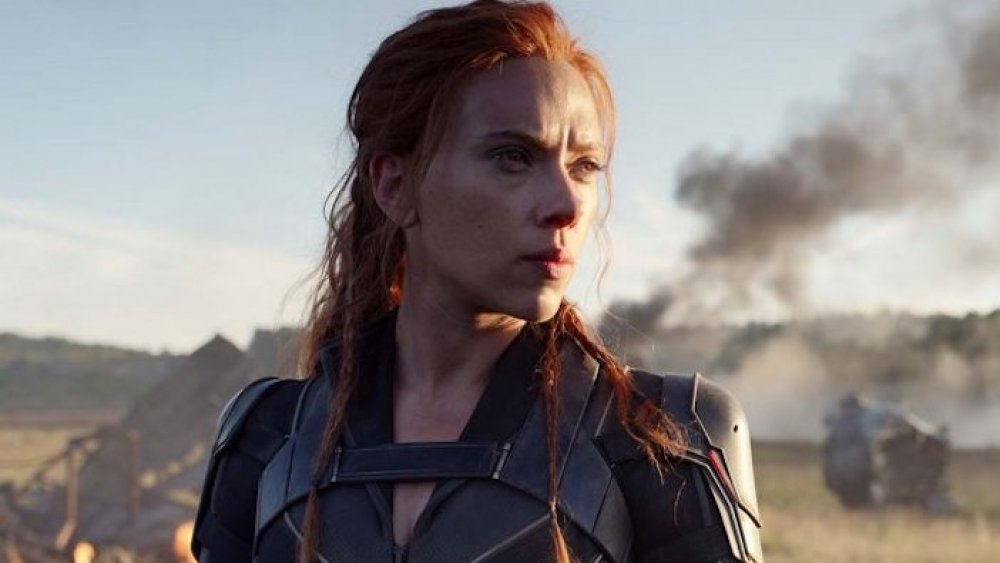The Real Reason Kevin Feige Nearly Quit Marvel
The battle for diversity in Hollywood may have found its mightiest hero. And fittingly enough, it's the one currently in charge of the Marvel Cinematic Universe.
That's the word from MCU stalwart Mark Ruffalo at least. In a February 2020 interview with The Independent, the always-outspoken man behind the Hulk took Tinseltown to task for its systemic lack of inclusion over the years. But when prompted about similar criticisms within the MCU, Ruffalo fired back with a story about Marvel chief creative officer Kevin Feige's ongoing fight to dramatically change that particular narrative. If Ruffalo is to be believed, that fight was already raging during production on 2012's groundbreaking superhero crossover The Avengers.
"When we did the first Avengers, Kevin Feige told me, 'Listen, I might not be here tomorrow.' And he's like, 'Ike [Isaac Perlmutter, Disney's largest shareholder at the time] does not believe that anyone will go to a female-starring superhero movie," Ruffalo revealed, recalling the moment when Feige told him he was going to talk to Disney brass about why there weren't any women-led Marvel films yet. Per Ruffalo, Feige then noted, "'So if I am still here tomorrow, you will know that I won that battle.'"
So it seems Feige was indeed prepared to leave his beloved MCU behind altogether if Disney brass didn't get on board with his vision for a cinematic universe that not only felt like a better representation of the world itself, but also the wildly diverse world of Marvel, who's current slate of heroes come in all shapes, sizes, ethnicities, and sexual orientations.
Given Feige's current status as Disney's unquestioned man calling the shots on all things Marvel, there's little doubt that he won that particular fight. Perhaps more importantly, it's clear he's set on making good on his goals by continuing to fight the good fight in terms of representation in the blockbuster world of the MCU – and therefore Hollywood at large.
The MCU really is about to get more diverse than ever
According to Ruffalo, that showdown with Ike Perlmutter was indeed the turning point in Feige's war for inclusion among the MCU's supers, because he "wanted black superheroes, women superheroes, LGBT superheroes." Ruffalo added, "[Feige] changed the whole Marvel universe. We now have a gay superhero on the way, we have black superheroes, we have female superheroes — Scarlett Johansson has her movie coming out, we have Captain Marvel, they are doing She-Hulk next. No other studio is being that inclusive on that level. They have to, though. This is the f***ing world."
One look at the Marvel's Phase 4 release slate is more than enough proof that Feige is about to make the MCU more diverse than it's ever been. That Phase 4 is set to open with the female-fronted Black Widow seems all the more fitting, especially as it will finally give Scarlett Johansson's long-time MCU supporting player her well-deserved cinematic moment in the sun.
The post-Black Widow landscape will only build on Feige's inclusive vision with the launches of Shang-Chi and the Legend of the Ten Rings, which features a predominantly Asian led cast; Thor: Love and Thunder, which will confirm Valkyrie (Tessa Thompson) as the MCU's first openly queer superhero as she searches for a queen to help her rule New Asgard; and The Eternals, which will include the first gay superhero in the MCU, Phastos (Brian Tyree Henry).
Still, some continue to wonder why, if Feige was going toe-to-toe with Disney over inclusion as early as 2012, it took so long to make that vision a reality. After all, though diverse characters were present in the MCU for years, none took center stage until 2018, when Black Panther broke the color barrier to the tune of over $1 billion in box office returns (and a couple of Academy Awards to boot). A female super, however, didn't get her own film until 2019's Captain Marvel.
While that question continues to puzzle, it can probably be chalked up to Feige's penchant for planning Marvel releases years in advance, which means he likely slotted those groundbreaking offerings in as early as he possibly could. Whatever the case, we can rest assured knowing that the MCU is about to get a whole lot more colorful and inclusive — and undoubtedly a lot more interesting.

